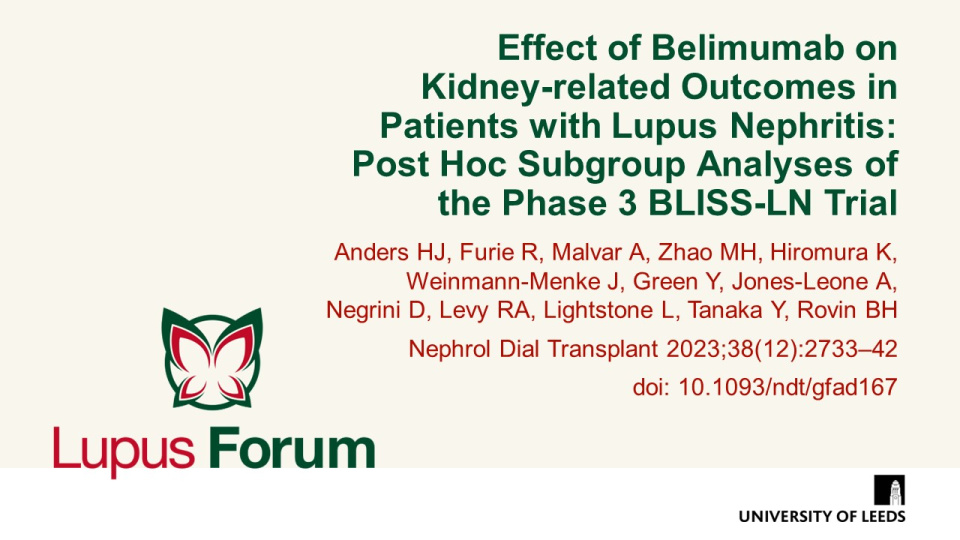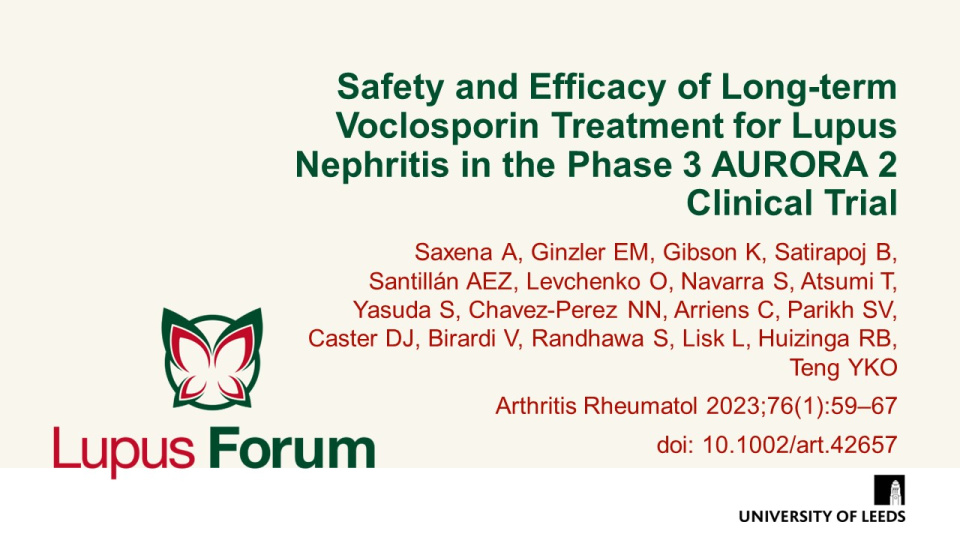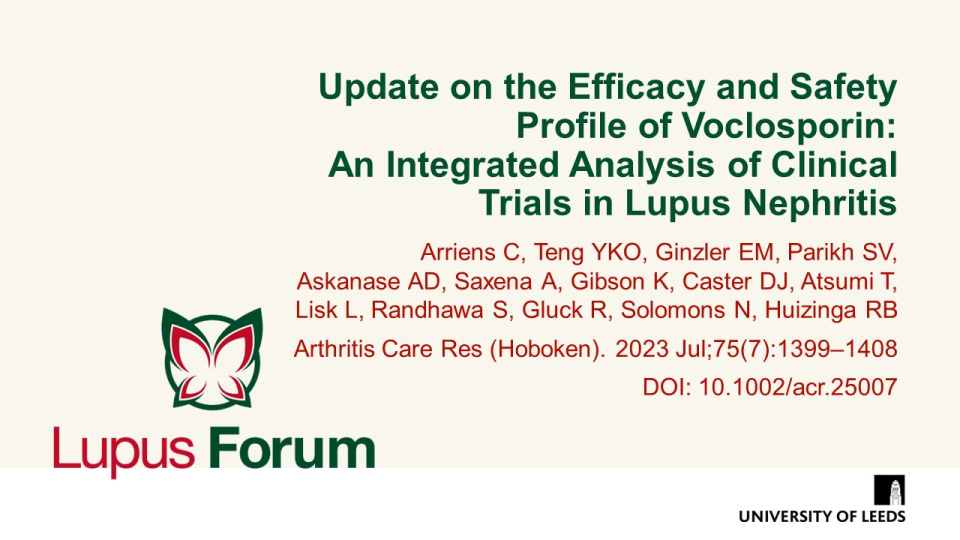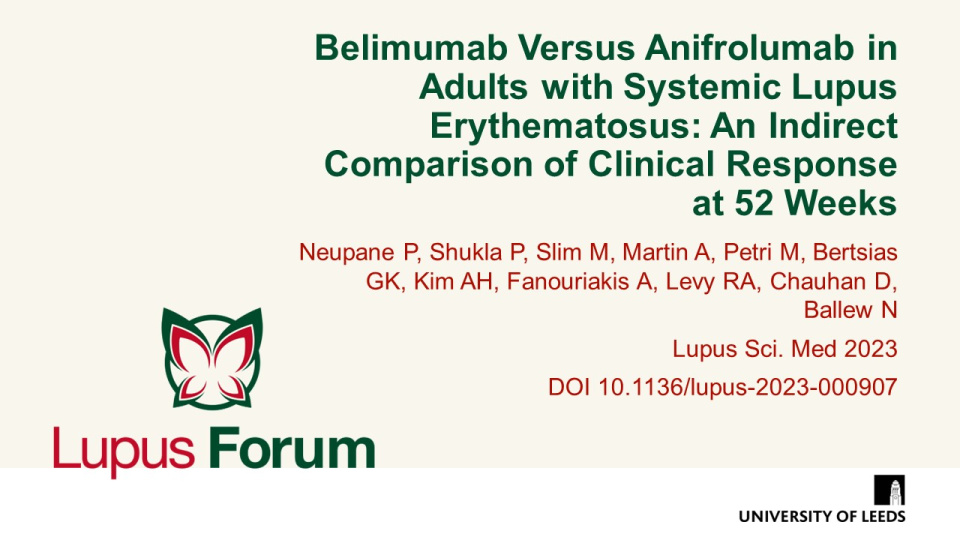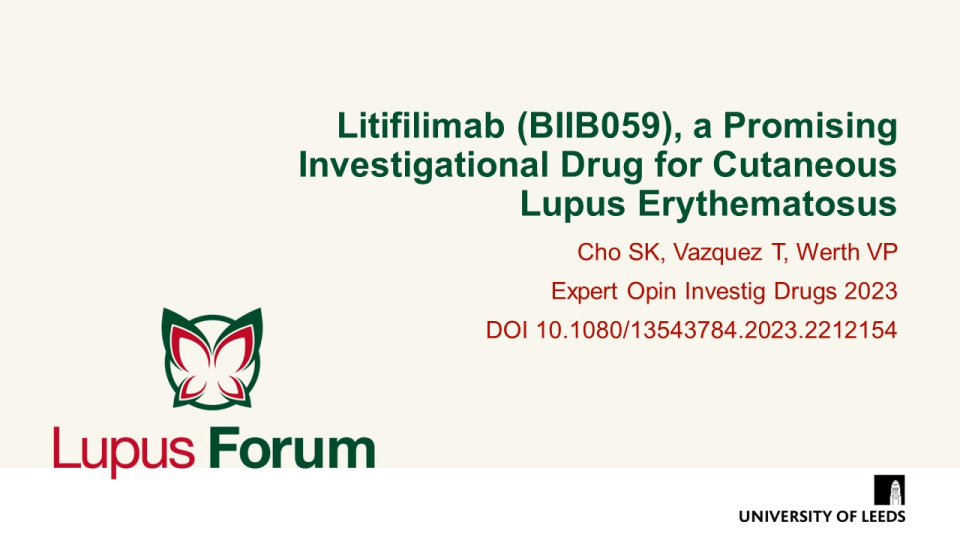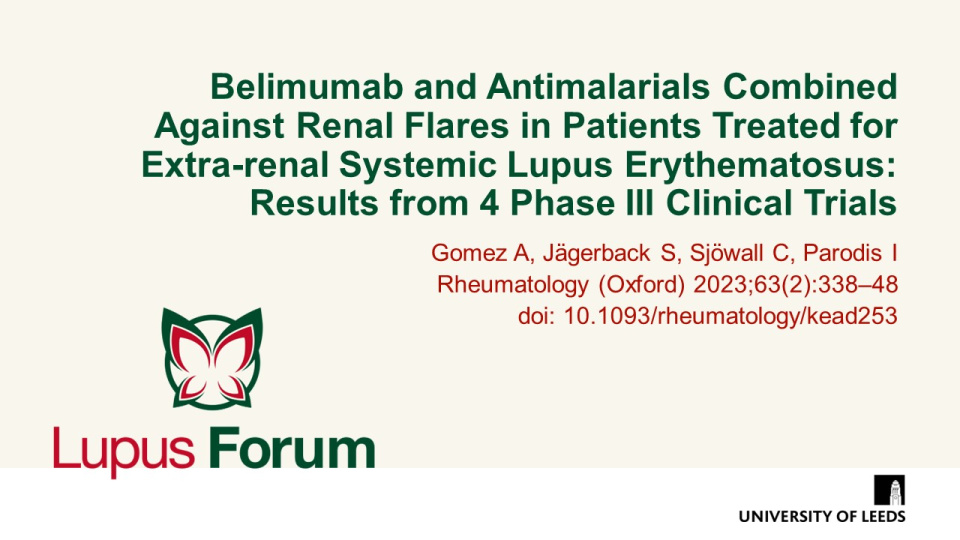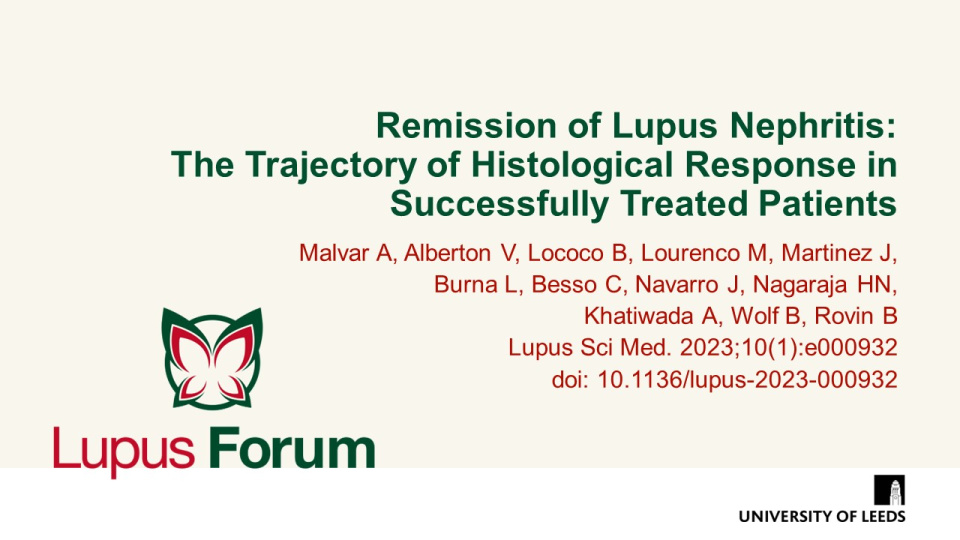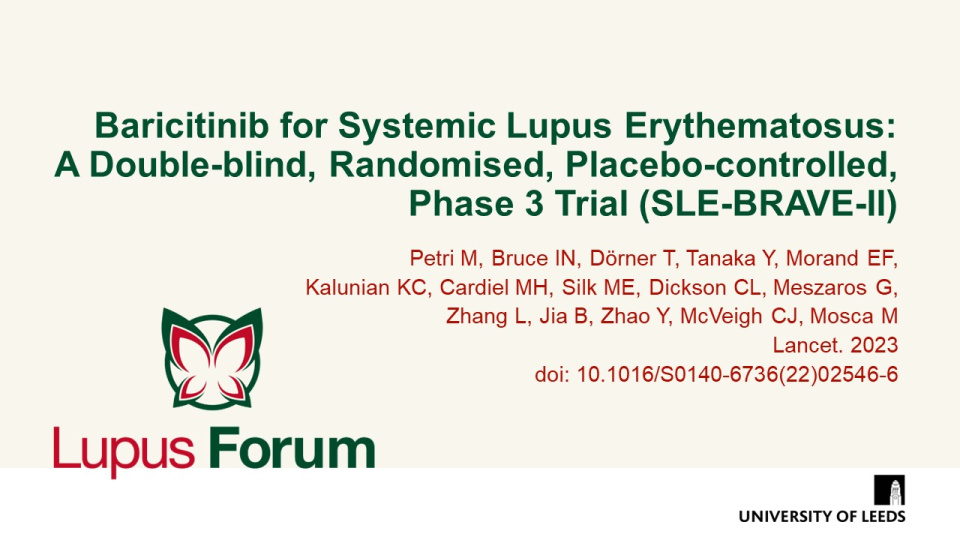Publications
Find coverage of the latest original articles on Lupus, focusing on those with data on therapeutic interventions and those that have clinical impact.
Effect of Belimumab on Kidney-related Outcomes in Patients with Lupus Nephritis: Post Hoc Subgroup Analyses of the Phase 3 BLISS-LN Trial
Nephrol Dial Transplant. 2023;38(12):2733–42 doi: 10.1093/ndt/gfad167 Epub ahead of print.
These data highlight the consistent benefit of belimumab versus placebo, combined with standard therapy, on kidney outcomes in both newly diagnosed and relapsed patients, and regardless of the use of GC pulses at induction.
SGLT2 Inhibitors Alleviated Podocyte Damage in Lupus Nephritis by Decreasing Inflammation and Enhancing Autophagy
Ann Rheum Dis. 2023 DOI: 10.1136/ard-2023-224242
Data revealed a renoprotective effect of SGLT2 inhibitors by reducing proteinuria and preserving renal function in the murine MRL/lpr lupus model.
Safety and Efficacy of Long-term Voclosporin Treatment for Lupus Nephritis in the Phase 3 AURORA 2 Clinical Trial
Arthritis Rheumatol. 2023;76(1):59–67 DOI: 10.1002/art.42657
AURORA 2 demonstrated the safety and tolerability of continued administration of voclosporin over 3 years of treatment in patients with LN.
Keywords:
Update on the Efficacy and Safety Profile of Voclosporin: An Integrated Analysis of Clinical Trials in Lupus Nephritis
Arthritis Care Res (Hoboken). 2023 Jul;75(7):1399–1408 DOI: 10.1002/acr.25007
Pooled analysis of data from the AURA-LV phase 2 and AURORA 1 phase 3 trials of voclosporin in patients with active LN demonstrated that significantly more patients achieved a complete renal response at 1 year in the voclosporin than the control group (p<0.0001), with no observation of new safety signals.
Belimumab Versus Anifrolumab in Adults with Systemic Lupus Erythematosus: An Indirect Comparison of Clinical Response at 52 Weeks
Lupus Sci. Med 2023;10:e000907 doi 10.1136/lupus-2023-000907
This retrospective study by Neupane, et al. compared belimumab and anifrolumab efficacy at 52 weeks in SLE patients. It concluded that belimumab and anifrolumab have equal efficacy, but further studies would be needed for specific patient demographics.
Litifilimab (BIIB059), a Promising Investigational Drug for Cutaneous Lupus Erythematosus
Expert Opin Investig Drugs 2023;15:1-9 doi 10.1080/13543784.2023.2212154
Cho, et al. discuss the current challenges in the approval of CLE drugs and suggest outcome measures that could streamline the process. They also discuss the pharmacodynamics of litifilimab and the current status of clinical trials.
Belimumab and antimalarials combined against renal flares in patients treated for extra-renal systemic lupus erythematosus: results from 4 phase III clinical trials
Rheumatology (Oxford) 2023;63(2):338–48 doi: 10.1093/rheumatology/kead253
The protection conferred from belimumab against renal flare development in patients treated for extra-renal SLE appears enhanced when administered along with antimalarials (AMA).
Clinical and biomarker responses to BI 655064, an antagonistic anti-CD40 antibody, in patients with active lupus nephritis: a randomized, double-blind, placebo-controlled, phase II trial
Arthritis Rheumatol. 2023;75(11):1983–93 doi: 10.1002/art.42557.
This phase II study of BI 655064 in patients with active LN did not meet the primary endpoint of CRR at Week 52, however, post-hoc analyses suggest a potential benefit of BI 655064 180 mg in patients with active LN.
Remission of Lupus Nephritis: The Trajectory of Histological Response in Successfully Treated Patients
Lupus Sci Med. 2023;10(1):e000932 doi: 10.1136/lupus-2023-000932
LN histological activity takes months to years to resolve, providing a rationale for the need of long-term, well-tolerated maintenance immunosuppression.
Baricitinib for Systemic Lupus Erythematosus: a Double-blind, Randomised, Placebo-controlled, Phase 3 trial (SLE-BRAVE-II)
Lancet. 2023 doi: 10.1016/S0140-6736(22)02546-6
Negative results of SLE-BRAVE-II trial show that evidence for the efficacy of baricitinib in SLE is inconclusive.


